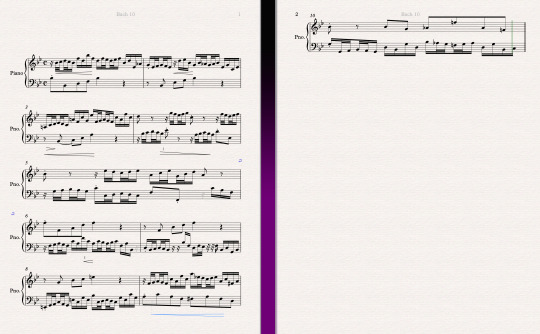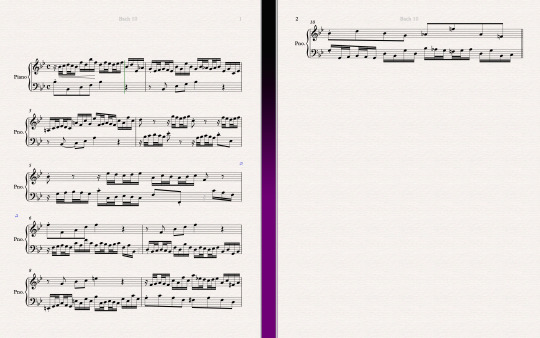Text
midterm for music tech
0 notes
Text
Original piece for class (2 versions)
(the gunshots has to do with the sample at the end)
have a couple samples and if you are a nerd wait til the end
1 note
·
View note
Text
original piece for class, no drums
enjoy
0 notes
Text
Music Technology post 4: VR concerts
VR Concerts: This is not directly "music technology" but it is a tech advancement related to music. We all know what concerts are and how amazing live music is, but a big reason people don't go is because maybe they just can't travel or the price. VR concerts would probably cost money but maybe someone does not enjoy being in crowded places or is sick or something. They can enjoy the show from their own home with VR. They can get that full immersive experience and be right there with the artist performing. We have already started this process of concerts at home. Over the past few years we have seen artists live stream shows on streaming platforms which is honestly awesome. I choose to see that this started because of COVID-19, sadly. While we were all quarantined and stuck home, many artists including John Legend, Billie Eilish and Elton John would go on Instagram Live or YouTube and stream themselves playing their music. Over the past year and a half we even had Kanye West and Drake play at the Rose Bowl and it was streamed on Amazon Prime Video and The Weeknd did an album release party exclusively streamed on Amazon Prime Video as well. He also has an upcoming show at SoFi Stadium in LA which will be live on HBO. Soon we will see concerts available on VR devices like Oculus and Unity and probably even available on smart phone compatible VR headsets.
(based off the linked article)
1 note
·
View note
Text
Music Technology post 3: how Akai's MPC and Sampling changed music
Akai is a Japanese company that has been putting out some of the best music technology tools for around 4 decades and will continue to. There’s many great MIDI controllers and drum machines and samplers but none will ever top the Akai MPC. The Akai MPC is not only a top of the line sampler, but is the heart and soul of hip-hop production. The MPC60 was released in December of 1988 and was designed to be user friendly, intuitive and functional. Well, it was just that. That is why many producers switched over to it. It came with 16 sample pads that allowed 13 seconds of sound in each one. It really became a big deal around the mid 90’s, when producer J Dilla came onto the scene. He used the MPC 2000XL and MPC 3000. He was such an important figure, in not only hip-hop but music as a whole, that his MPC 3000 is actually on display at the Smithsonian National Museum of African American History and Culture. This really took sampling to a whole new level and it is kind of a big deal. Music is forever evolving and with the MPC, the art of sampling continued to evolve. Sampling is when an artist takes a piece of another song and uses it in theirs. You can pretty much take these samples, assign them to any of the 16 drum pads and play the sample by just hitting the pad. Coby Ashpis is a musician out of LA and said in a Vox article, “You can play one sample like a full instrument; you can change it. It opened up all recorded music to be played with in a really freeing way — a way that still used beats and samples but is more similar to playing a traditional acoustic instrument like keyboards or drums,”. It really is amazing to see the longevity of the MPC as well. It is still a household name in production today.
(Vox article linked)
2 notes
·
View notes
Text
Music Technology pt.1
There are a lot of basic computer terms that I didn't know were related to music making. I always thought in my young production career it was just DAW and knowing theory but there is way more to production than I thought. I knew the terms like USB, SSD, RAM but I never knew what they really did but the one that stood out was RAM. RAM stands for Random Access Memory (yes, like the great Daft Punk album from 2013). RAM is often overlooked by a beginning producer like myself. It is a vital specification in a computer. What the RAM does is give applications a place to store and access data on a short term basis. Another thing, the larger the RAM, the faster your computer can process things. See how this works with music? RAM is very important for music production because it allows for the computer to transition quickly between tasks. It speeds up response time, file conversions (like wav to mp3), mix downs and allows for more recording and MIDI tracks. If the RAM of your computer is not good or sufficient enough, there are higher chances of application crashes, freezing and errors. Of course, your recordings can only be as good as the tools you use to create them so the better the RAM, the better the recording process, really. Low RAM could not only enhance crashes and all that but even in the DAW, switching back and forth between tracks, instruments and sounds can take a lifetime to complete and if you are using a bunch of plugins and sounds there will be serious latency issues. RAM is super important make sure it's all good!
0 notes

